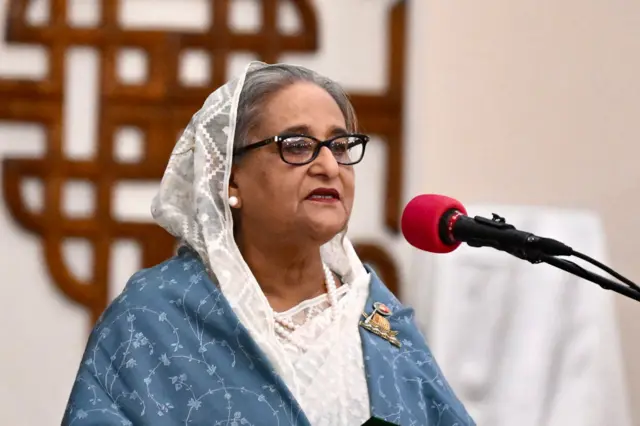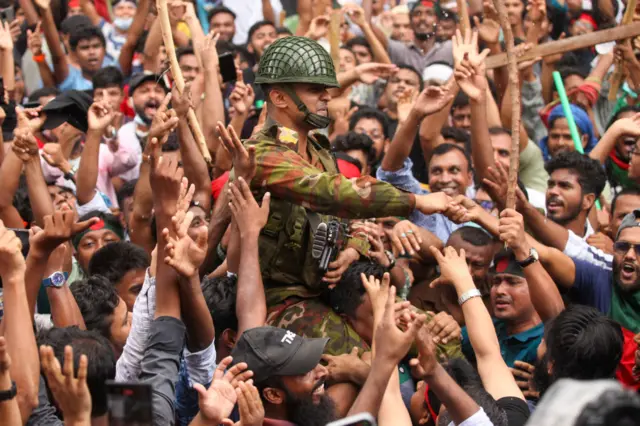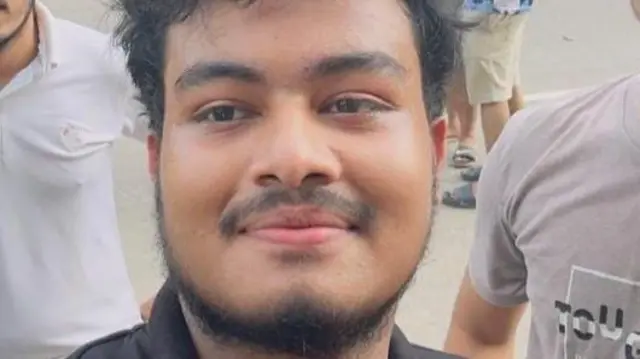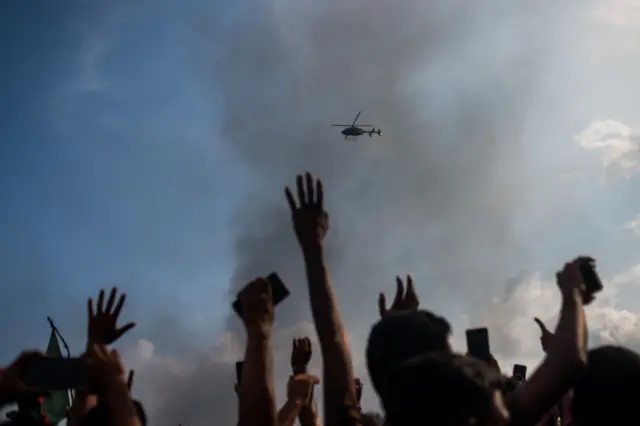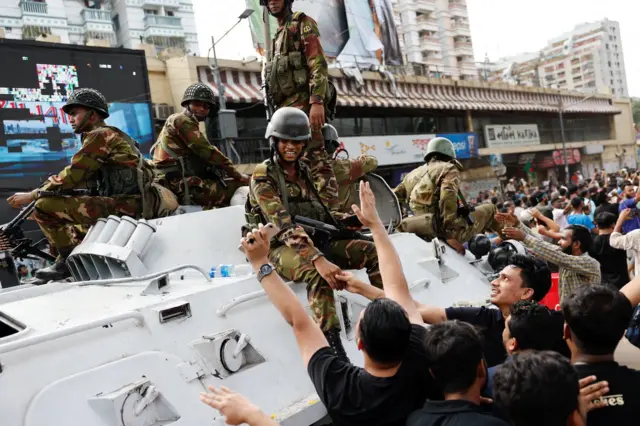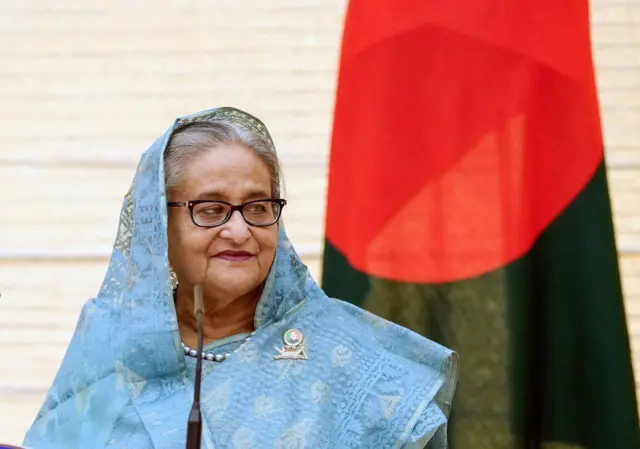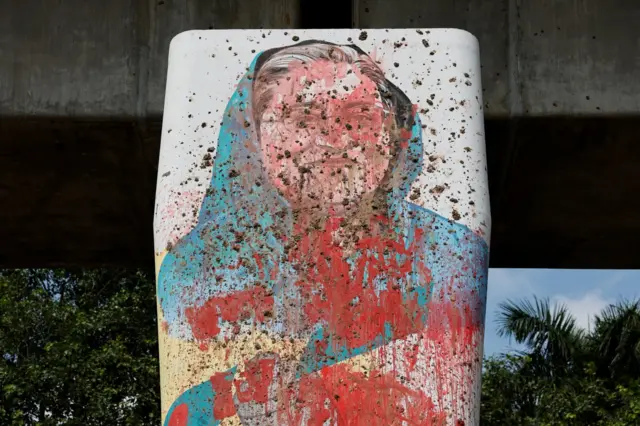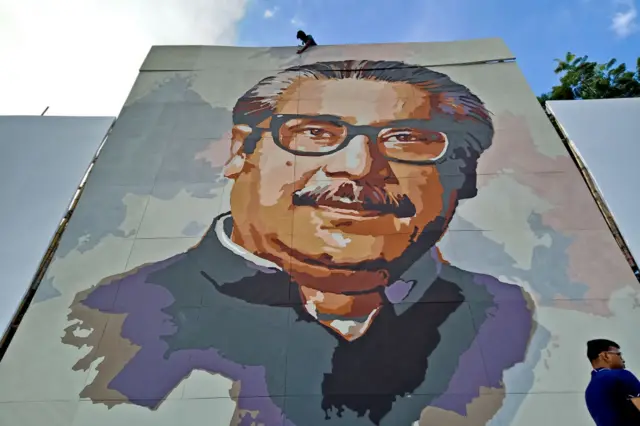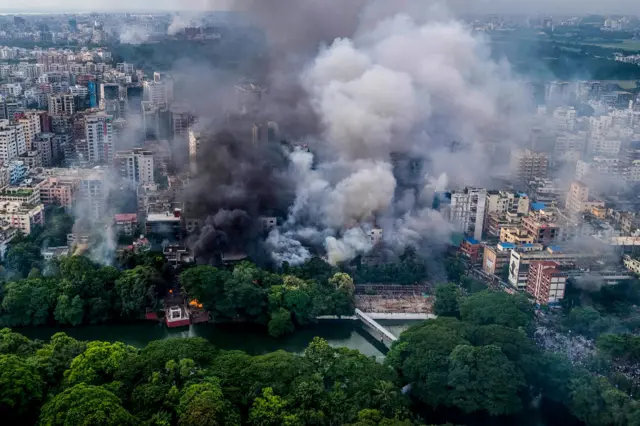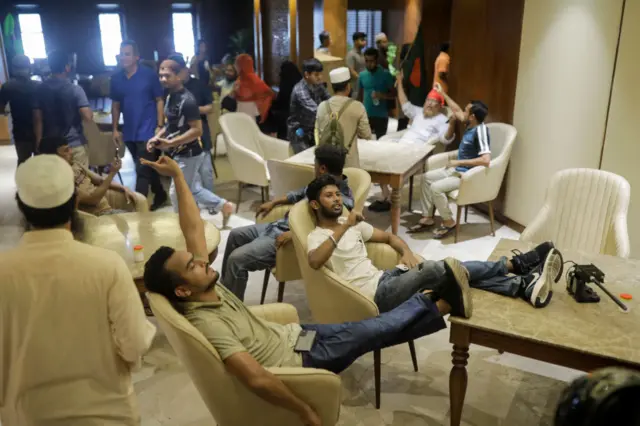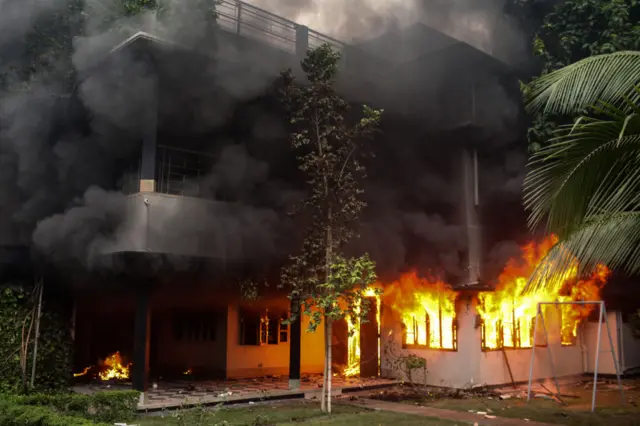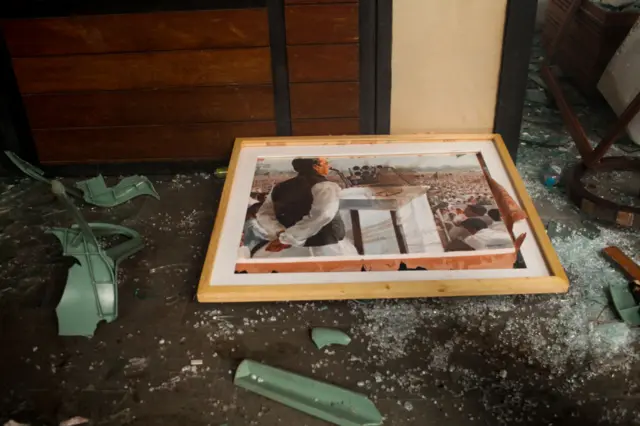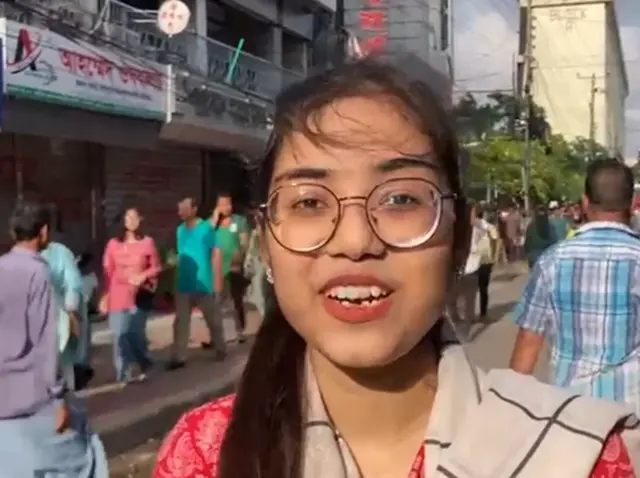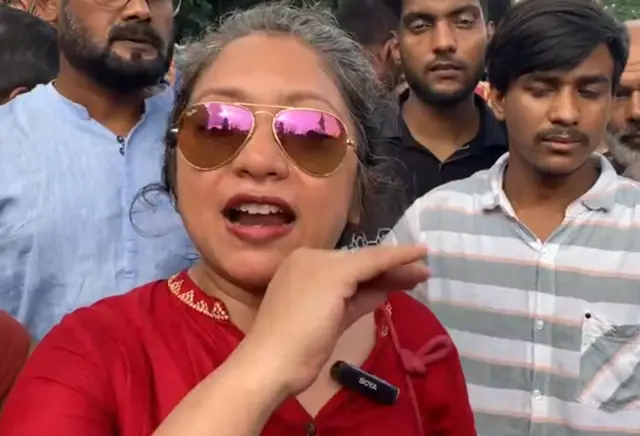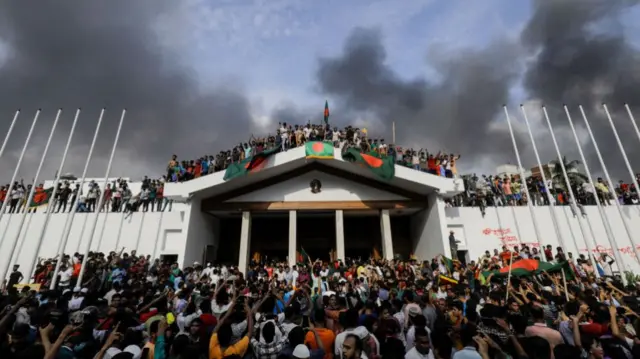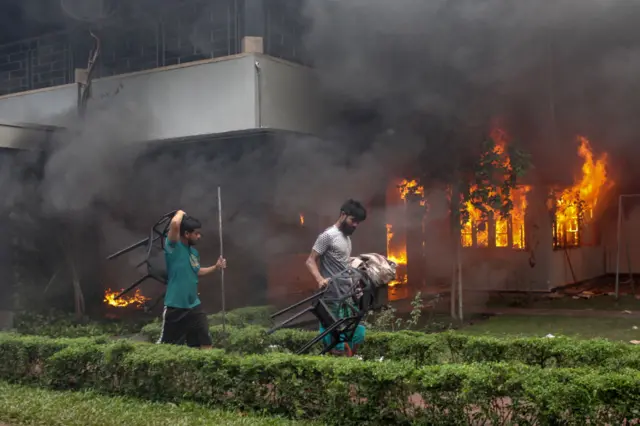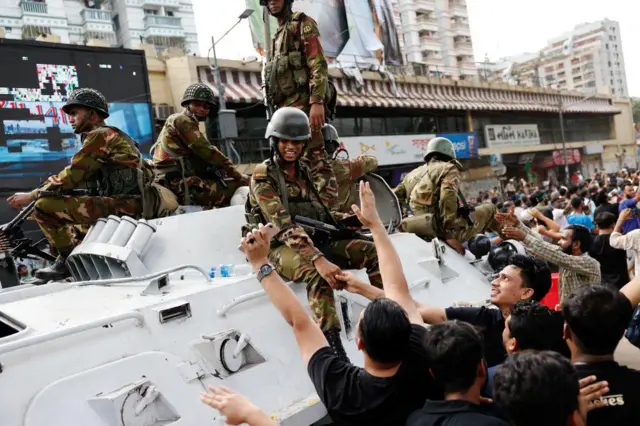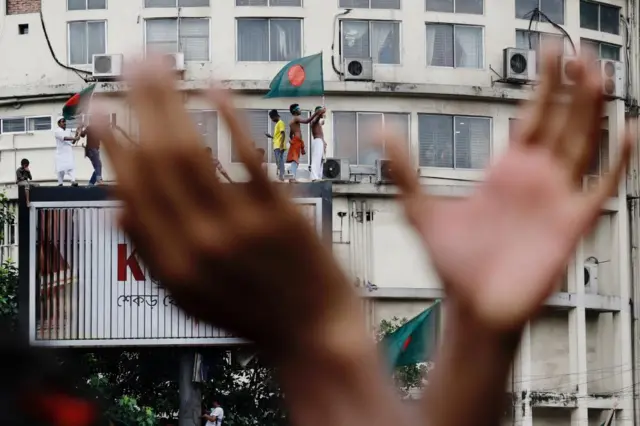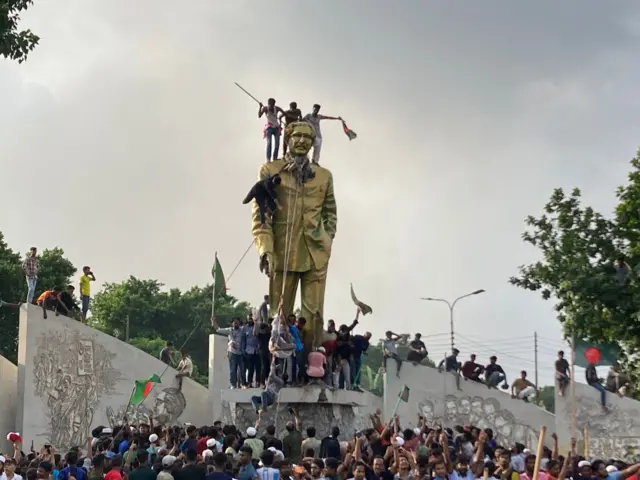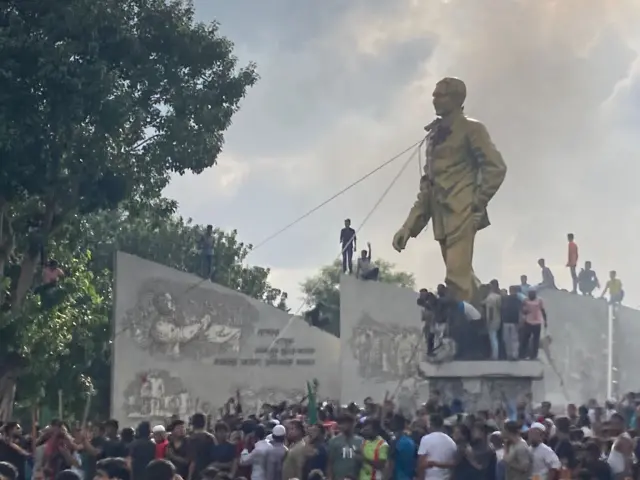Schools have opened but classrooms are emptypublished at 05:39 BST 6 August 2024
The Bangladesh army's public relations arm announced on Monday night that all educational institutions would reopen from Tuesday, including schools, colleges and universities.
It remains unclear, however, when classes will resume.
Afsar Munna, a student of Dhaka University told the BBC's Bengali service on Tuesday morning that authorities had "opened the halls since yesterday. But no academic activities are going on.
"Ultimately there is no authority now."
Another student of Jagannath University also echoed this, saying that while the campus has opened, classes had not started.
A student from Rajshahi University, which was heavily involved in the student quote reform protests, said the hall at his university has not yet opened, adding: "I heard that today the students themselves will open the hall and enter."
Tanveer Haseeb, a student from Jahangirnagar University, added that many students "had gone home" and that it would take time for them to return to the capital.
It is believed the University Teachers Network, an organisation of university teachers in different parts of Bangladesh, will meet today at 11:00 local time (06:00).
